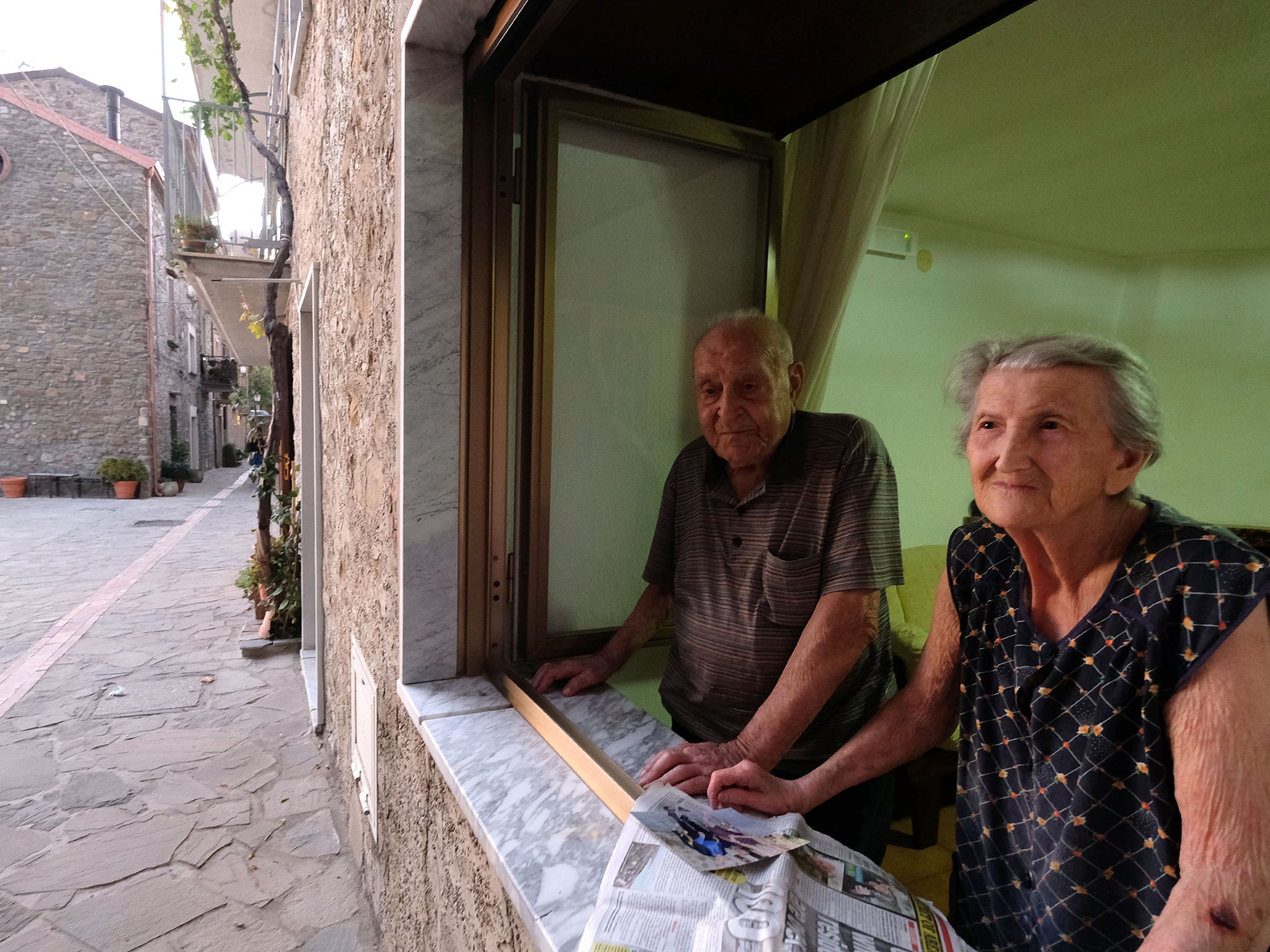Scientists ‘find key to longevity’ in Italian village where one in 10 people live beyond 100 years
Fresh food, sex, or is it the rosemary? Research team spends six months investigating the health and habits of the elderly residents of Acciaroli

Your support helps us to tell the story
From reproductive rights to climate change to Big Tech, The Independent is on the ground when the story is developing. Whether it's investigating the financials of Elon Musk's pro-Trump PAC or producing our latest documentary, 'The A Word', which shines a light on the American women fighting for reproductive rights, we know how important it is to parse out the facts from the messaging.
At such a critical moment in US history, we need reporters on the ground. Your donation allows us to keep sending journalists to speak to both sides of the story.
The Independent is trusted by Americans across the entire political spectrum. And unlike many other quality news outlets, we choose not to lock Americans out of our reporting and analysis with paywalls. We believe quality journalism should be available to everyone, paid for by those who can afford it.
Your support makes all the difference.Acciaroli in south west Italy is no ordinary place. It is home to an extraordinarily high number of centenarians.
More than one in 10 of the population of 700 is over 100 years old, and the hamlet has been the focus of a study to discover the factors that contribute to its residents’ longevity.
After spending six months in the area, researchers from Rome’s Sapineza University and the Sandiego School of Medicine found that elderly people in the region have unusually good blood circulation for their age.
The research team analysed blood samples from more than 80 residents, and discovered extraordinarily low levels of adrenomedullin, a hormone that widens blood vessels.
The levels of adrenomedullin were similar to those you would normally find in people in their 20s and 30s, the researchers said.
High levels of the hormone can cause blood vessels to contract, causing circulatory problems which can lead to other serious health conditions.
The scientists found the hormone “in a much reduced quantity in the subjects studied and seems to act as a powerful protecting factor, helping the optimal development of microcirculation”, or capillary circulation.
The research team is yet to discover the cause of the phenomenon, but believe it is closely related to diet and exercise.
People in Acciaroli tend to eat locally caught fish, home-reared rabbits and chickens as well as olive oil and home-grown vegetables and fruit.
The study also notes that the locals all eat rosemary, which is thought to help improve brain function, and local varieties of the herb are set to be studied in a broader examination into longevity in the region.
“When we tested it, we found a dozen different compounds in there. Scientific studies have shown that acids help the function of the brain,” Dr Alan Maisel, a cardiologist from the School of Medicine at the University of California San Diego, told The Telegraph.
In addition, those living in the region suffer from fewer diseases than those living in other western countries.
“We found that they don’t have the sort of chronic diseases that we see in the US such as heart disease, obesity and Alzheimer’s,” Dr Maisel said.
“We noticed that they don’t suffer from cataracts. Most people in the US, if you are over 80, you have cataracts. We saw none,” he said.
But perhaps there is another important factor in locals’ long lives.
“Sexual activity among the elderly appears to be rampant,” Dr Maisel said. “Maybe living long has something to do with that. It’s probably the good air and the joie de vivre.”
The hamlet, 85 miles south from Naples on the Cilento coast, is in the area where US nutritionist Ancel Keys cited the highest concentration of centenarians in the world in 1950, as he sought to establish evidence that a “Mediterranean diet” contributed to longevity.
He moved to the region with his wife, and lived to be 100 years old.
Join our commenting forum
Join thought-provoking conversations, follow other Independent readers and see their replies
Comments